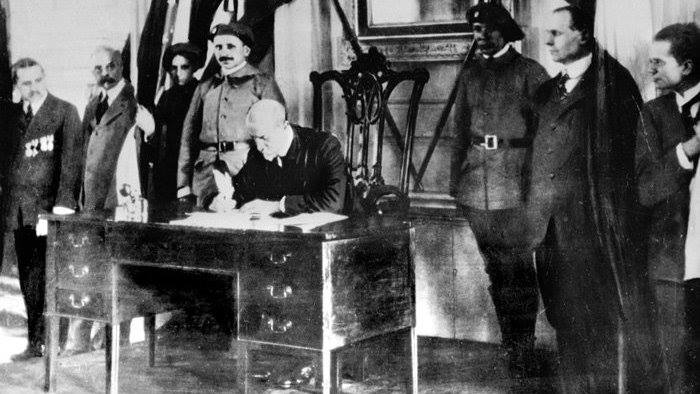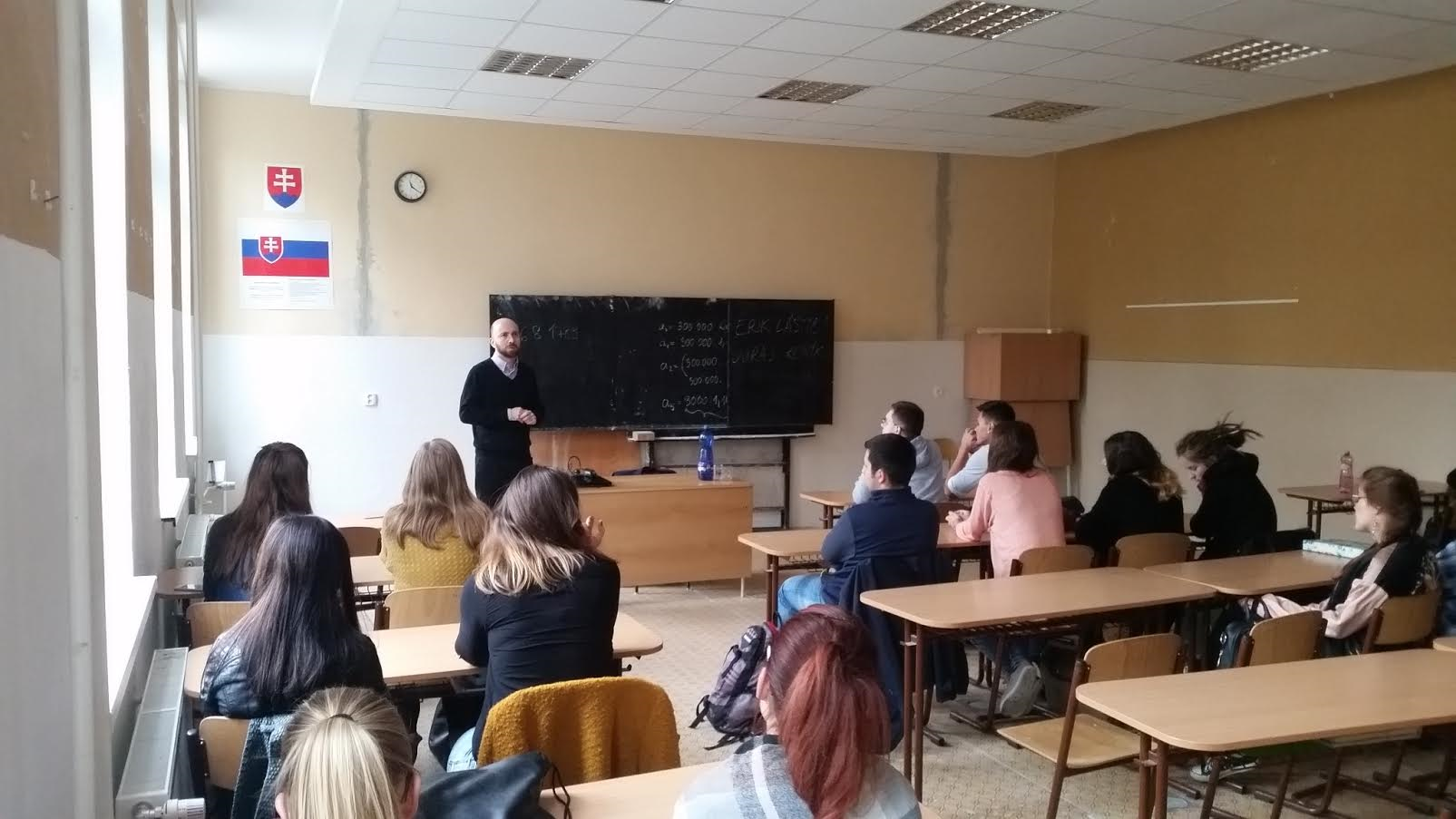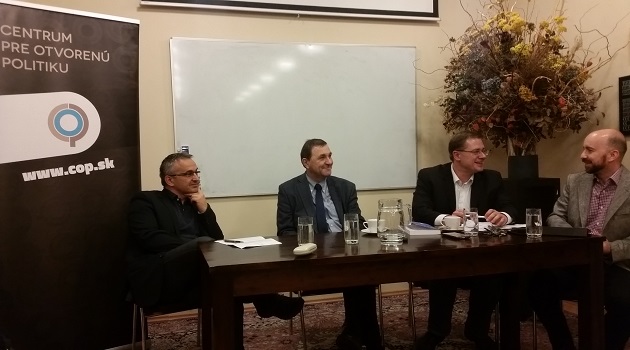Ronan McCrea: How to hobble religion
Ronan McCrea is a barrister and a lecturer at the Faculty of Laws at University College London. His latest book is Religion and the Public Order of the European Union (2010).
he European relationship between religion, law and politics is a strange creature. Religious influence over political life is weaker in Europe than in almost any other part of the world. To adapt the phrase first used by Alastair Campbell when he was spokesman for the British prime minister Tony Blair, politicians in Europe generally ‘don’t do God’. The EU’s Eurobarometer surveys of public opinion suggest that religion has a very limited impact on the political values and behaviour of European voters. Europe has no equivalent to the politically powerful religious right in America, nor to the theological debates in the political arena that one sees in many Islamic countries.
Recently, however, this long-standing distance between religion and politics has been threatened. Migration is one factor that has helped religion to return to centre stage in public life. While Muslim minorities have protested over questions of blasphemy and free speech, Catholic leaders have intervened in political debates about gay marriage and abortion, and conservatives have lamented that European societies are losing touch with their Christian past. The political scientist Eric Kaufmann has argued that religious believers have a demographic advantage in birth rates that will see Europe’s secularisation reversed by the end of this century.
Religious justifications for terrorism might be the most visible and dramatic threat to liberal states from increased religiosity, but the separation of religion and politics has recently been challenged in multiple ways and in many countries, not just in Europe. Both the US and Canada have experienced controversies over the attempted use of religious law in family arbitration, while Islamic leaders in Australia have provoked intense debate after giving sermons denouncing gender equality. However, the renewed visibility of religion in public affairs provokes particularly intense challenges in Europe since it undermines well-established, but often tacit, conventions on the limits to religious influence on public life.
Secularism in Europe has been in part influenced by the original recognition in Christian theology of separate secular and religious realms (the Bible’s injunction to ‘render unto Caesar’). But the distinctive European ‘settlement’ on religion stems from the religious wars of the 16th and 17th centuries. The suffering caused by these conflicts across western and northern Europe brought a strong desire for political norms and structures that could end the misery and instability caused by religious contestation for political power. The Peace of Westphalia — a series of treaties concluded in 1648 — established the principle that sovereign states would respect each other’s boundaries and differing state religions. This acceptance of the permanence and legitimacy of religious diversity between (if not within) European states combined with the work of thinkers such as Grotius, Hobbes, Locke and Hume to provide Europe with ways of thinking and speaking about politics that were separate from religion.
Religious bodies in Europe have more limited political influence than in most of the rest of the world, but this has generally been a cultural norm rather than a legal or constitutional principle. In the modern postwar period there has been an expectation that religions will keep their distance from politics. Of course, the churches and other religious institutions have not stayed out of European politics entirely: in France, last month’s bill on gay marriage was vigorously opposed by the Catholic Church. Even on this issue, religious influence is notably weak in Europe, where legal recognition of gay marriage is more widespread than any other part of the world.
To assume that there is a simple separation between religion and state here in Europe, or that religion has no political power, would, however, be to misunderstand European history. The weak political influence of religion in Europe has been accompanied by considerable cultural ties and legal links between particular churches and individual European states, and these are reflected in many residual echoes of religious influence and privilege in public life.
The populations of most European states have a clear majority of one particular denomination of Christianity. This means that, until recently, to be of a particular nationality usually meant to belong to a particular religion: to be Spanish was to be Catholic; to be Swedish, Lutheran; to be Greek, Greek Orthodox; and so on. The overlap between religious and national identity meant that the symbols and other elements of a country’s predominant religion played a significant part in public life, and in many cases still do. In this sense, European secular states are very different from the principle of separating church and state in the US, a nation built on religious pluralism, even if mostly under a Christian rubric.
Several European countries recognise official state religions (including the Anglican Church in England), while the constitutions of others invoke Christianity. Even where there is no official state religion, the influence of the dominant form of Christianity is visible in many areas of public life. Church taxes are levied by the state on behalf of religious denominations in many countries, the government funds a range of religious schools and hospitals and, in most European states, the working calendar remains structured around Christian festivals. Many European countries have the cross as part of their national flag and religious festivals such as St Patrick’s Day double as national festivals.
Indeed, not a single European state has institutional arrangements that would satisfy the requirements of the US Constitution, which prohibits symbolic or financial endorsement of religion by the state.
The less-than-totally-secular nature of Europe’s church-state arrangements goes beyond mere symbols. Concrete legal privileges are retained by religions, most notably in the area of free speech where a range of countries retain laws restricting antireligious speech, either by blasphemy laws or laws restricting insult or ridicule of religion.
It is this residual Christian identity in public life that has become so contested by the pluralism of postwar European society. Migration has pushed religion back to the centre of public debate, but has also placed pressure on the remaining legal and symbolic privileges held by Christianity in European states, pressure that may well have the effect of banning religion from legal and political life altogether.
In the past, religion in Europe has played a role somewhat like that of the modern British monarchy. On paper, the British monarch is both a national symbol and the holder of key political and legal powers. However, the powers theoretically held by the monarch — such as the right to nominate a prime minister and refuse to sign legislation — are subject to shared understandings that they will not be used in normal circumstances. Imagine if there were a substantial minority population in the UK who believed that the monarch ought to exercise significant political power — perhaps a substantial immigrant population who arrived with a pre-existing commitment to monarchical government. This would create pressure to remove those symbolic, largely unused powers. This is exactly what is happening to the residual influence and presence of religion in the European political and legal sphere.
As populations of European states have become more religiously diverse, the ability of a particular faith to act as part of a shared national identity has diminished. In part this is because there are many ethnic communities who do not share Christian cultural loyalties, but it is also because numbers of self-declared atheists and agnostics are rising rapidly at the same time. The UK census of 2011 showed a surge in the percentage of people who said they had no religion from 15 per cent to 25 per cent. Previously, many of those who are not particularly religious were content to describe themselves as Christian on cultural grounds: in Europe, numbers of such nominal Christians have long exceeded those who profess belief in the core tenets of the Christian faith. But as religion and national identity have gradually begun to separate, religious identity becomes more a question of ideology and belief than membership of a national community. This has encouraged those who are not true believers to move from a nominal Christian identity to a more clearly non-religious one.
Once nationality is no longer synonymous with a particular religious denomination, the symbols of that religion lose their ability to act as uncontroversial national cultural symbols. Where they might once have been shared, now such symbols become highly contested. For example, in Ireland in 2007, Ravinder Singh Oberoi, a Sikh, challenged the uniform rules of the Garda Reserve, the volunteer force within the Irish police, to allow him to wear a turban; in San Marino in 1999, three incoming MPs went to the European Court over the traditional oath they were required to make, on the basis that its reference to ‘the holy Gospels’ violated the rights of non-Christian deputies; and in Italy in 2011, Soile Lautsi, an atheist mother, took her children’s school to the European Court of Human Rights for displaying a crucifix in the classrooms. In the UK, the National Secular Society has taken legal action to challenge the practice of saying prayers before local council meetings and in state schools.
Yet these challenges to religious symbolism in public have not all been successful. Last month, the High Court in Ireland refused to allow Mr Oberoi to wear a turban while on duty with the Garda Reserve, on the basis that the police force must be religiously neutral (even as the badge of that same force is based on imagery of Celtic Christian monastic art, which is seen as an important part of Irish national cultural heritage). Mrs Lautsi’s initial victory in Strasbourg was reversed on appeal on the basis that the ‘passive symbol’ of the cross on a classroom wall was not sufficiently indoctrinating to trigger the intervention of the European Court. And a victory in court for the National Secular Society in its challenge to council prayers was followed by political defeat as the UK government legislated to reverse that decision. Nevertheless, the proliferation of challenges to these residually Christian symbols in public life shows how, in a more diverse Europe, the Christian flavour of public institutions is becoming increasingly controversial.
At the same time, the assertive expression of religious values, dress and other symbols by non-Christian communities has been equally influential. Olivier Roy, professor at the European University Institute in Italy and a well-known scholar of European Islam, has noted how suspicion and fear has been created in Europe by ‘the emergence of new communities of believers who do not feel bound by the compromises laboriously developed over the past centuries between the religious and the secular’. These fears are driving a process that formalises and restricts the role of religion and its privileges in public life.
In some countries, the visible nature of the religious symbols of Muslim communities has provoked national governments to restrict the wearing of all religious symbols in public, including Christian and Jewish ones. In 2004, France banned all ‘ostentatious’ religious symbols in state schools; the same year, the state of Berlin proposed a ban on all religious symbols in state offices; while in 2008, Denmark moved to ban religious symbols from courtrooms. These have been followed by more wide-ranging prohibitions on facial veils in both France and Belgium. While these measures have in large part been motivated by a desire to restrict the wearing of Muslim symbols, their effect, in many cases, is to remove all religious symbols, thus intensifying the secularisation of public spaces, and pushing religion further into the private sphere.
In the political arena, cultural norms that made it simply ‘bad form’ to bring religion into politics are also being replaced with more black-and-white legal rules. For centuries, the UK was content to have an anti-blasphemy law on the books just as long as it was understood that it was not to be invoked to unduly restrict speech on religious matters. The Satanic Verses affair of 1989 and its echoes in the Danish cartoons controversy of 2005 showed that some citizens of Europe did not share this tacit consensus and had altogether different ideas about what ought to constitute legally actionable blasphemy or unacceptable criticism of religion. Yet the result has been the opposite of what religious protesters might have hoped: in the UK, the legal response was not to broaden the scope of blasphemy but, in 2008, to abolish the law altogether. Similarly, in Ireland, a revision of the offence of blasphemy in 2009 inserted a clause specifying that no crime would be committed where the defendant could prove ‘genuine literary, artistic, political, scientific or academic value’.
Likewise, states including France, Austria, the Netherlands, Germany and the UK have introduced integration tests that require prospective citizens to indicate that they are aware of, or in some cases actively accept, the separation of religion and politics, as well as principles such as gender equality and gay rights. In France in 2010, the authorities rejected the citizenship application of a Muslim man who refused to allow his wife to speak or leave the house without his permission, and in 2008 the French courts upheld their earlier ruling to refuse citizenship to a Muslim woman whose ‘radical practice of her religion’ included wearing the face veil on the grounds that it was ‘incompatible with the values of the Republic’ such as gender equality.
Many of those supporting such tests have done so out of xenophobia and bigotry against Muslim migrants — the National Front in France has discovered a love for secularism that it did not have before secularism became a stick with which to beat immigrant populations. But others have supported these developments out of a genuine commitment to liberalism, feminism and the separation of religion from politics that has served Europe well in the past.
There will certainly be costs to this process. Some will feel a sense of loss for the connection to history that ancient Christian symbols and rituals can provide. The flexibility of the old, informal social contract could be missed by religious individuals and institutions chafing at rules that make the strict separation of religion, law and politics explicit. However, it is difficult to see what European states can do apart from formalise the separation between religion and the state. Historically, European secularism emerged as a means to manage the danger of conflict that religious diversity brings — at the time this was conflict between varieties of Christianity. As the range of religious and non-religious identities in Europe continues to expand, intensified secularisation of the public sphere is the likely, and desirable, result.
To take the opposite tack, and invite religion more fully into legal and political life, would be risky. As the German philosopher Jürgen Habermas argues, failing to restrict religious influence over politics risks a degeneration into religious contests for political power. The intellectual historian Mark Lilla, professor of humanities at Columbia University, argues that separation of religion and politics is a product of a chance combination of historically specific factors, and anything but inevitable: it cannot be taken for granted. It has encouraged the development of an ideal of shared citizenship in religiously diverse populations and has been crucial to the advance of liberal principles such as gender equality and gay rights.
The clarification of limits on the role of religion in law and politics, if fairly applied, could help to alleviate the sense of double standards and unfairness that many migrants and their naturalised descendants feel. European secularism will be harder to portray merely as disguised Christian privilege, or free speech as an excuse to undermine Islam, once it is clear that established Christian faiths are not exempt from these norms.
Either way, what we see is a general process under which greater religious diversity is making it difficult for religion in Europe to retain the residual political and symbolic roles that it has had until now. These roles relied on religion being seen as a national cultural symbol, and on implicit understandings that churches would largely steer clear of politics and would not use their legally privileged status to restrict criticism or mockery of religion to too great a degree.
Such a system is proving unsustainable. There are now too many diverse cultural expectations about religion, its role in political life, and the degree to which it can be criticised or mocked. The more muscular religiosity of some migrant communities, among other factors, is provoking European governments to restrict religion firmly to the private sphere, and to render the public sphere a strictly secular one. Perhaps, as Giuseppe di Lampedusa wrote in his novel The Leopard (1958), ‘everything must change so that everything can remain the same.’
(AEON 17. 6. 2013)
https://aeon.co/essays/is-migration-making-europe-more-secular







